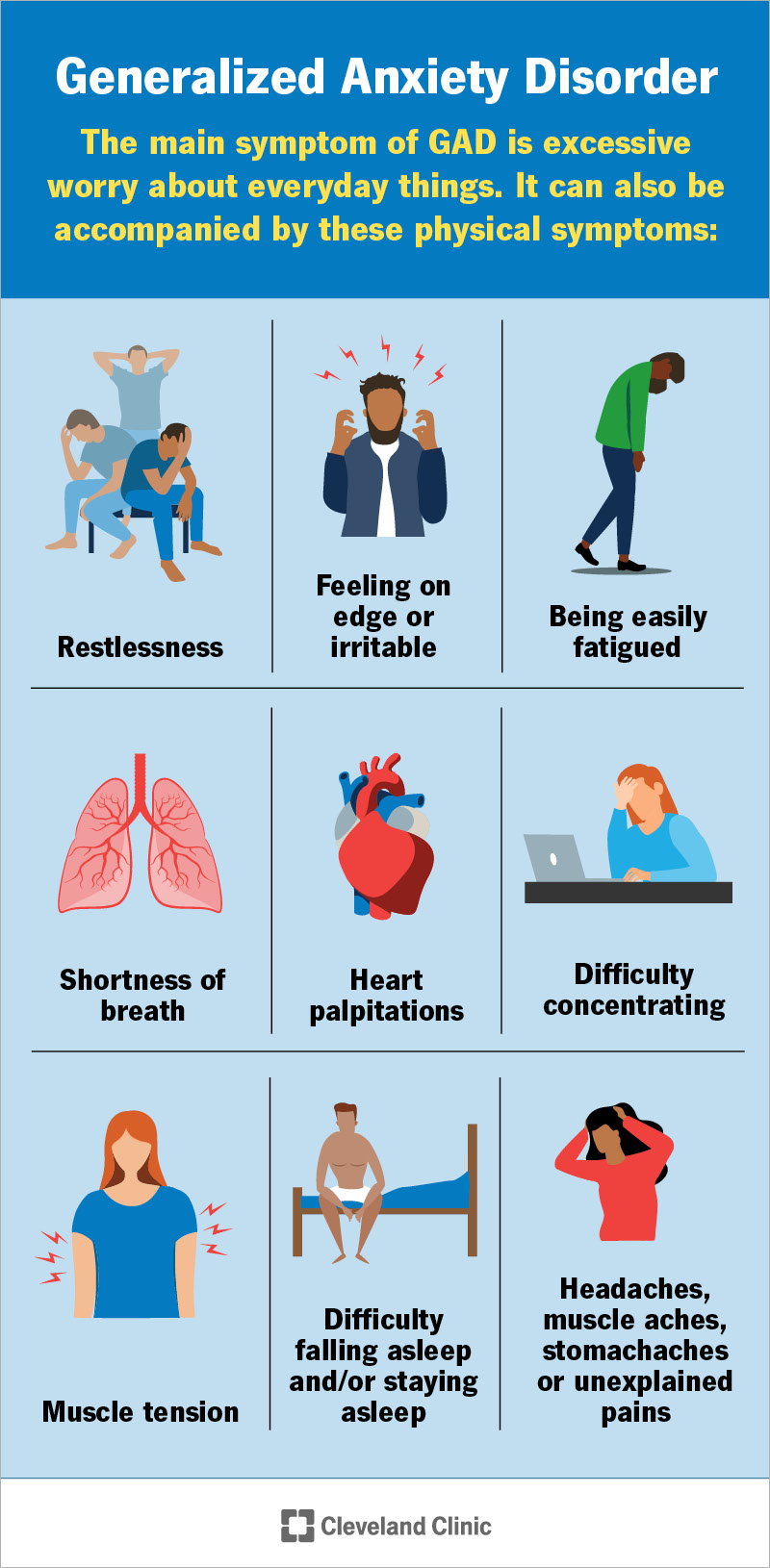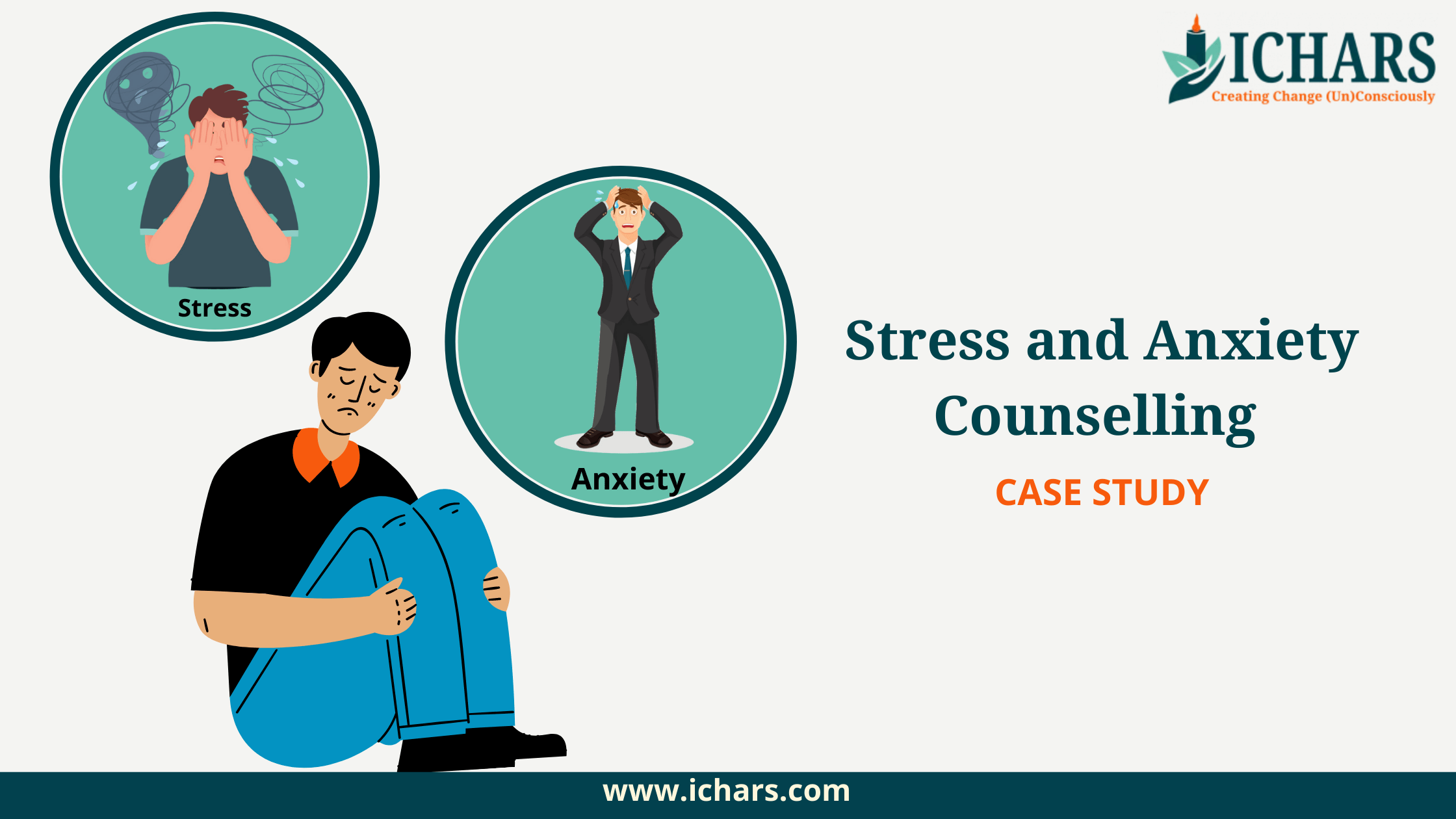Checking Out Different Methods in Coaching for Stress And Anxiety Condition for Enduring Change
When taking on stress and anxiety conditions, it's important to explore a variety of counseling techniques. Each approach uses unique understandings and devices to help you handle your signs and symptoms successfully. You may discover that incorporating techniques can generate the best outcomes. Nevertheless, comprehending the nuances of these techniques is crucial to cultivating lasting adjustment. Suppose the ideal combination could launch a new level of emotional health for you?
Comprehending Anxiety Problems: A Brief Review
Anxiousness disorders, which affect millions of individuals worldwide, can significantly influence day-to-day live. You might experience frustrating sensations of concern or stress that appear uncontrollable. These sensations can lead to physical symptoms like a racing heart, sweating, or perhaps wooziness. Common types of anxiety conditions consist of generalized stress and anxiety disorder, panic condition, and social anxiousness disorder. Each has distinct indicators, yet they all share a tendency to disrupt your routine and relationships.Understanding the origin of your anxiousness is vital. It could originate from genes, brain chemistry, or life experiences. Acknowledging your triggers can assist you manage your reactions much better. It is necessary to keep in mind that you're not the only one in this struggle. Many individuals encounter comparable challenges, and seeking assistance is a strong step toward feeling much better. By learning more about anxiousness problems, you're currently on the path to understanding and managing your condition better.
Cognitive-Behavioral Treatment: Testing Unfavorable Idea Patterns

Recognizing Adverse Idea Triggers
Identifying the details triggers behind your negative ideas can be vital in handling stress and anxiety when you encounter minutes of distress. Beginning by focusing on scenarios that provoke feelings of concern or fear. Is it a crowded area, a forthcoming due date, or a discussion with particular people? Write these circumstances in a journal. This will aid you determine patterns in your reasoning. Notification physical feelings that accompany your unfavorable ideas, like a racing heart or rigidity in your upper body. By determining these triggers, you gain insight into what's sustaining your stress and anxiety. Recognizing these connections is the first step in testing those thoughts and ultimately reclaiming control over your emotional actions.

Changing Ideas With Positives
Testing adverse thought patterns is a crucial action in transforming your attitude and reducing anxiousness. You might commonly find yourself caught in cycles of self-doubt or disastrous thinking. Rather than letting these thoughts dictate your sensations, method replacing them with realistic options or positive affirmations. When you think, "I can not manage this," change it to, "I can take care of difficulties one step at a time." This straightforward adjustment can significantly affect your psychological state. On a regular basis recognizing and countering these adverse thoughts helps create a healthier internal discussion. Bear in mind, it takes some time and effort, but consistently practicing this technique can lead to lasting modification, empowering you to face anxiety with renewed confidence and strength
Building Coping Methods Together
Changing unfavorable thoughts is only the start of managing anxiety efficiently. To create lasting change, you need to develop coping methods that empower you. Cognitive-Behavioral Therapy (CBT) assists you identify and challenge those unhelpful thought patterns. Together, you and your counselor can check out just how these thoughts effect your sensations and behaviors.Start by establishing functional strategies, like journaling or mindfulness workouts, that allow you to challenge anxiousness head-on. When you face your fears gradually, you'll discover to react differently.

Mindfulness and Acceptance-Based Approaches: Cultivating Present-Moment Understanding
As you browse the intricacies of anxiousness, including mindfulness and acceptance-based approaches can considerably boost your capacity to grow present-moment recognition. By concentrating on the present moment, you'll find that you can observe your thoughts and sensations without judgment. This practice aids you recognize your stress and anxiety without really feeling bewildered by it.Engaging in mindfulness exercises, such as deep breathing, body scans, or guided reflections, enables you to ground yourself in your existing experience. Acceptance-based techniques motivate you to embrace your emotions as opposed to fight against them. They lose their power over you.Incorporating these methods right into your everyday regimen can transform how you respond to anxiousness when you approve your feelings. You'll establish resilience and learn to browse demanding situations with better ease. Inevitably, cultivating present-moment understanding lays the structure for long-term change, equipping you to lead a more satisfying life.
Exposure Therapy: Confronting Concerns Slowly
Exposure treatment aids you confront your anxieties in a gradual means, making it less overwhelming. You'll find out original site methods to encounter anxiety-provoking situations step by action, while additionally developing coping strategies to handle your responses. This approach equips you to take control and reduce stress and anxiety with time.
Gradual Direct Exposure Strategies
When facing anxiousness, slowly challenging your fears can be a powerful method to gain back control. This technique, recognized as steady exposure, involves slowly subjecting on your own to the circumstances or items that cause your anxiousness. Beginning with less daunting scenarios and gradually work your method as much as even more challenging ones. If you're scared of public talking, you may start by speaking in front of a mirror, then advance to sharing thoughts with a close friend, and at some point deal with a small group. Each action aids desensitize you to the anxiety, constructing your self-confidence with time. Remember, it's important to pace on your own and commemorate little success as you move through this procedure, enhancing your capacity to handle anxiety efficiently.
Structure Coping Methods
Structure efficient coping techniques is vital for handling anxiousness, particularly as you face your worries gradually. One effective technique is direct exposure treatment, where you begin by facing your fears in a regulated fashion. Start with less intimidating scenarios and slowly work your method as much as even more difficult scenarios. This steady exposure aids desensitize you to anxiousness sets off, making them much less overwhelming.Incorporate relaxation strategies, such as deep breathing or mindfulness, to soothe your mind throughout direct exposure. Track your progress, commemorating small triumphes along the method to boost your self-confidence. Keep in mind, it's all right to take your time; the goal isn't excellence but constant improvement. By constructing these techniques, you'll encourage yourself to navigate anxiety and welcome life extra totally.
Psychodynamic Treatment: Revealing Root Reasons of Stress And Anxiety
Psychodynamic treatment explores the unconscious mind, exposing the source of your stress and anxiety - Counseling services for anxiety. By analyzing your thoughts, feelings, and previous experiences, this approach assists you reveal underlying problems and unresolved problems that may add to your current stress and anxiety. You'll collaborate with a specialist to investigate youth experiences, relationships, and emotional patterns that shape your actions today.As you obtain insight into these deeper layers of your mind, you'll begin to identify just how past events influence your present habits. This understanding can cause catharsis, permitting you to refine feelings you could have suppressed.Through the therapeutic relationship, you can likewise determine protection systems that may have created with time, offering a clearer course to transform. Ultimately, psychodynamic therapy furnishes you with the tools to address your stress and anxiety at its core, promoting long lasting improvement in your psychological wellness
Integrative and All Natural Strategies: Incorporating Methods for Greater Efficiency
Incorporating different restorative techniques can enhance Learn More Here your trip towards taking care of anxiousness better. By integrating elements from cognitive-behavioral therapy, mindfulness practices, and holistic strategies, you can develop a tailored approach that addresses your special needs. For example, you may use cognitive-behavioral techniques to challenge adverse thought patterns while incorporating mindfulness workouts to ground on your own in the present moment.Additionally, discovering all natural practices such as yoga or reflection can advertise relaxation and minimize anxiety symptoms. This blend enables you to create greater self-awareness and resilience.Experimenting with these varied approaches can assist you uncover what resonates Resources most with you. Bear in mind, it has to do with locating a synergy that functions, as opposed to staying with a single approach. This integrative technique not only provides immediate relief but also cultivates long-term abilities for handling stress and anxiety, empowering you to redeem control over your life.
The Function of Assistance Solutions: Building Resilience Via Connection
While it may seem that managing anxiety is a singular trip, having a strong support group can play a vital duty in your strength. Surrounding on your own with empathetic close friends, household, or support teams produces a risk-free area where you can honestly share your experiences and feelings. You advise on your own that you're not alone in this struggle.These connections provide support and can supply practical coping strategies that have actually worked for others when you link with others. It's also a chance to obtain perspective; pals can assist you see scenarios in different ways, minimizing sensations of isolation.Moreover, emotional assistance cultivates a feeling of belonging, which can considerably reduce anxiousness symptoms. By leaning on your support group, you can construct durability and take on challenges better. Remember, reaching out for assistance signifies strength, and it can make all the difference in your journey toward managing anxiousness.
Frequently Asked Questions
What Are the Usual Symptoms of Anxiety Disorders?
You may experience restlessness, fatigue, difficulty concentrating, irritability, muscle tension, and sleep disturbances. Physical signs can include fast heartbeat, sweating, and trembling. Identifying these signs early can aid you seek appropriate assistance and treatment.

The Length Of Time Does Treatment Commonly Last for Anxiety Problems?
Therapy for stress and anxiety conditions commonly lasts anywhere from a couple of weeks to several months. It actually depends upon your specific needs, progress, and the methods your specialist uses to help you handle your anxiety efficiently.
Can Medication Be Made Use Of Alongside Therapy for Anxiety?
Yes, medication can absolutely be used along with therapy for stress and anxiety. Incorporating both methods typically improves therapy performance, aiding you handle signs while discovering underlying concerns with counseling. Constantly consult your healthcare provider for personalized suggestions.
Exist Self-Help Approaches for Handling Stress And Anxiety?
Yes, there are numerous self-help techniques for taking care of anxiety. You can practice mindfulness, participate in regular exercise, keep a balanced diet, develop a routine, and make use of deep breathing methods to help in reducing anxiety signs and symptoms successfully.
How Do I Know if I Required Expert Aid for Anxiety?
You must consider looking for professional assistance for anxiety if it disrupts day-to-day live, causes considerable distress, or if self-help approaches aren't working. Trust fund your impulses; connecting can lead to better coping skills and support. Usual kinds of anxiety disorders consist of generalised anxiety condition, panic condition, and social anxiety problem. When you encounter minutes of distress, acknowledging the specific triggers behind your adverse thoughts can be important in taking care of anxiety. Changing negative ideas is just the start of handling stress and anxiety properly. By analyzing your ideas, sensations, and past experiences, this strategy aids you reveal underlying problems and unresolved problems that may contribute to your current stress and anxiety. It's also a chance to obtain perspective; friends can assist you see circumstances differently, decreasing sensations of isolation (Counseling services for anxiety).Moreover, emotional support promotes a sense of belonging, which can substantially relieve anxiousness signs